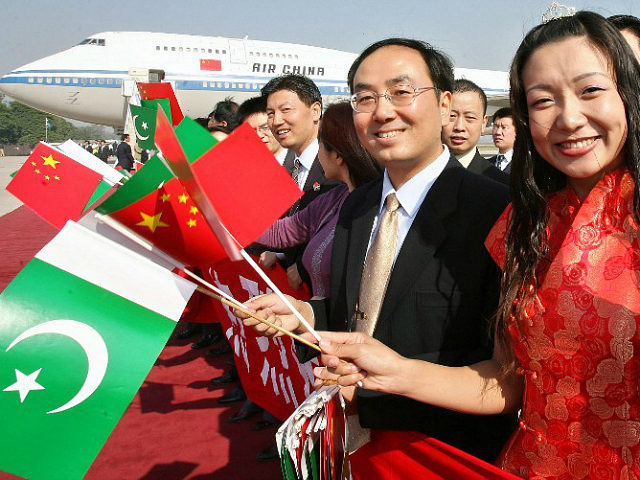Tensions between Pakistan and the United States over Islamabad’s reluctance to take decisive action against terrorist groups have deepened the relationship between traditional allies China and Pakistan, officials claimed this week.
Despite the estimated $33 billion the United States has provided Islamabad in security aid since the war in neighboring Afghanistan started, Pakistan’s Defense Minister Khurram Dastgir told Voice of America (VOA) it is China that has helped his country deal with its “terrorism crisis.”
While the Pentagon maintains that Islamabad has failed to take action against terrorist groups who plan and carry out attacks against American troops and their allies in Afghanistan from Pakistani soil, a top general in Pakistan recently claimed only a “scanty residual presence” of jihadists remain in his country.
Islamabad has extinguished all “organized” terrorist “sanctuaries” in the nation, Maj. Gen. Asif Ghafoor, head of the Pakistan military’s media wing, told Gulf News this month.
Echoing the general, Minister Dastgir told VOA that U.S. military and economic aid had become “insignificant” by the beginning of this year, adding:
China acted first, and Pakistan needed support very seriously and grievously. Now that we have it five years later, we have nearly resolved the energy crisis, we have nearly resolved the terrorism crisis. So, now that people of Pakistan and the government of Pakistan, which represents the people, look back, we see China as standing with us and the U.S. is constantly receding.
Beijing has vowed to spend $60 billion on the China-Pakistan Economic Corridor (CPEC), a series of infrastructure projects that make up the most substantial investment in China’s multi-trillion dollar Belt and Road Initiative (BRI), also known as the One Belt, One Road (OBOR) effort.
Meanwhile, the Trump administration has suspended an estimated $2 billion in security aid to Pakistan for its refusal to combat terrorist groups, namely the Afghan Taliban and its Haqqani Network allies.
Encouraged by the United States as a move to isolate Islamabad for not combating terrorist groups, the Financial Action Task Force (FATF), an international body focused on combating terrorism financing and money laundering, also blacklisted Pakistan recently, hindering the country’s access to global markets.
The Pentagon has long asserted that Islamabad provides sanctuary to terrorist groups that kill and maim American troops and their allies in Afghanistan, an accusation Pakistan denies.
“We are still very serious in maintaining our engagement with the United States…Unfortunately, the Trump administration has chosen to focus on the transactional part of the relationship,” the Pakistani defense chief told VOA, referring to U.S. military aid for anti-terrorism activities.
Historically, Beijing has been Islamabad’s top ally in South Asia, though the terrorist threat against China stems from Pakistani soil.

COMMENTS
Please let us know if you're having issues with commenting.